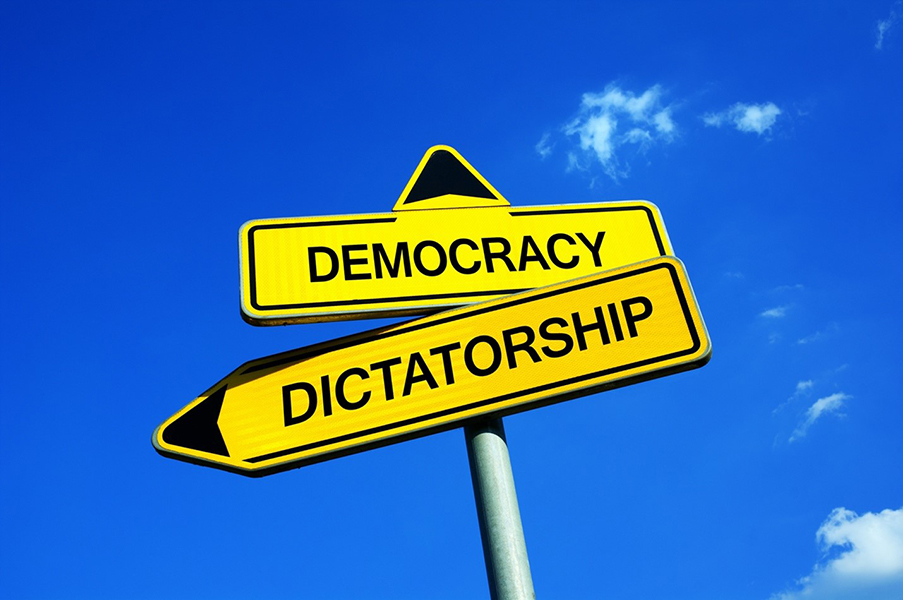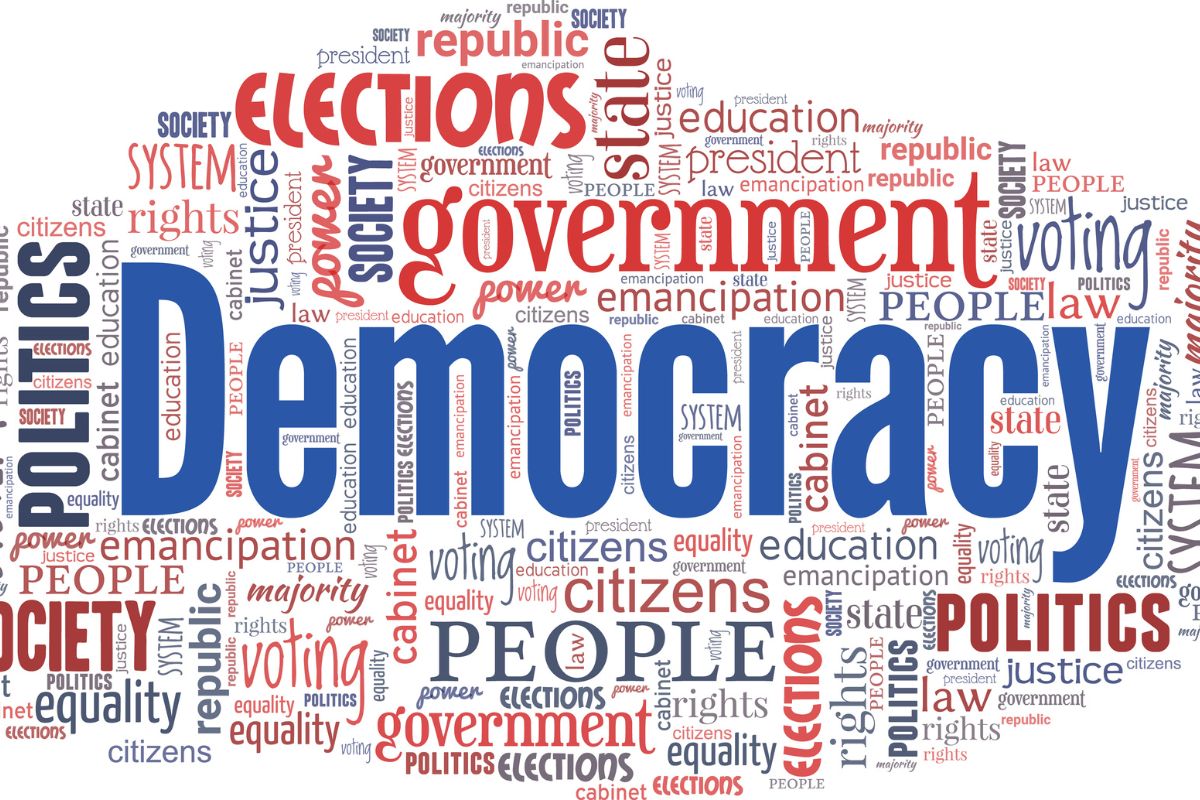The Future of Democracy: Can Democracies Survive the Age of Authoritarianism?
In recent years, many countries have seen a rise in authoritarian leaders and political systems, challenging the stability and longevity of democratic institutions. As global power dynamics shift and populist movements gain traction, the future of democracy is increasingly questioned. Can democracies survive in an era marked by rising authoritarianism, or will they falter under pressure? This article explores the challenges democracies face today and considers how they might evolve in the future.

The Rise of Authoritarianism: A Global Trend
How Authoritarian Leaders Are Gaining Ground
Across the world, political landscapes have been shifting towards more authoritarian governance. Leaders who reject the principles of democratic checks and balances, the rule of law, and press freedom have been coming to power in both established and emerging democracies. From Russia and Turkey to Hungary and Brazil, authoritarian rhetoric has resonated with citizens frustrated by the status quo, leading to increased support for leaders who promise strong, centralized control.
- Populism and Nationalism: Many of these leaders have risen on waves of populist sentiment, capitalizing on fears of globalization, economic inequality, and cultural change. Nationalism, often fueled by the fear of losing national identity, has led to the rejection of international cooperation and a desire for stronger borders.
- Weakening Democratic Institutions: These leaders often target the institutions that make democracies strong—free media, independent judiciaries, and fair electoral processes—gradually undermining them. This erosion of institutional checks on power makes it harder for democratic systems to function effectively.
The Challenges Facing Modern Democracies
Internal Divisions and Polarization
Democracies are grappling with deepening internal divisions. As social media amplifies polarizing opinions, voters are becoming more fragmented, with less willingness to compromise. Political ideologies have become more extreme, and the middle ground is disappearing.
- Disillusionment with Traditional Parties: Many voters feel disconnected from mainstream political parties, leading to an increased embrace of populist leaders who promise radical change. These leaders often portray themselves as outsiders fighting a corrupt elite, even when they themselves wield significant power.
- The Threat of Misinformation: In the age of social media, misinformation can spread quickly, undermining trust in democratic processes and institutions. Fake news, conspiracy theories, and manipulation by foreign actors can distort public opinion and create chaos during elections.
Economic Inequality and Unrest
Economic disparities continue to widen, with many individuals feeling left behind in a rapidly changing world. Globalization, technological advancements, and automation have created winners and losers, leading to widespread economic anxiety.
- Unmet Expectations: For many citizens, democracy has not delivered the promised prosperity. This frustration has led to disillusionment with democratic processes, pushing some to consider more authoritarian options as a solution to their problems.
- Protests and Social Movements: The rise of social movements in response to inequality, climate change, and political corruption further highlights the dissatisfaction many people feel with their governments. While these movements are often democratic in nature, they also reveal the cracks in democratic systems that are struggling to meet the needs of all citizens.
How Democracies Can Adapt
Strengthening Institutions
While the rise of authoritarianism is a major challenge, it is not necessarily the death knell for democracy. Strong democracies rely on robust institutions that safeguard rights, protect freedoms, and ensure the fair distribution of power.
- Protecting the Rule of Law: Maintaining a fair and impartial judicial system is critical for upholding the principles of democracy. Ensuring that the rule of law is respected, regardless of political power, is essential for the survival of democratic values.
- Press Freedom and Accountability: A free and independent press is one of the key pillars of democracy. By holding leaders accountable and providing a platform for diverse voices, the media plays a crucial role in preventing authoritarianism from taking hold.
Encouraging Political Engagement and Education
One of the most effective ways to strengthen democracy is by fostering a politically engaged and informed citizenry. Democracy thrives when people understand their rights and responsibilities and actively participate in political life.
- Civic Education: Investing in civic education at all levels of society can help future generations understand the importance of democratic values and how to engage with them meaningfully. By teaching young people about their democratic rights and the political system, democracies can build a more informed electorate.
- Encouraging Dialogue: Encouraging political dialogue across ideological divides can help reduce polarization and foster a more collaborative political environment. This requires both leaders and citizens to practice tolerance and openness, even in the face of disagreement.
Global Cooperation and International Support
A Strong International Network
In an increasingly interconnected world, the future of democracy is not solely in the hands of individual nations. Global cooperation and international support can play a vital role in supporting democratic ideals.
- Support for Democratic Movements: International organizations, such as the United Nations and the European Union, can offer support to countries experiencing democratic backsliding. This support can include diplomatic pressure, financial aid, and technical assistance to help strengthen democratic institutions.
- Promoting Democracy through Trade and Diplomacy: Democracies can use trade agreements and diplomatic relations as a platform for promoting democratic values. By prioritizing human rights, transparency, and rule of law, democratic countries can encourage others to follow suit.
The Role of Technology in Shaping Democracy’s Future
Technology as a Double-Edged Sword
Technology has the potential to both strengthen and weaken democracy. On one hand, it enables greater participation through social media, online voting, and access to information. On the other hand, it also facilitates the spread of misinformation and increases the risk of surveillance.
- Digital Activism: Technology has made it easier for people to organize and protest against oppressive governments, as seen in movements like the Arab Spring and Black Lives Matter. The ability to mobilize large numbers of people through online platforms can be a powerful force for change.
- Surveillance and Control: However, authoritarian regimes are increasingly using technology to monitor and control their populations. The use of mass surveillance, censorship, and digital repression threatens privacy and freedom, undermining democratic principles.

The Path Forward: Can Democracies Survive?
Hope Amidst the Challenges
The future of democracy in an era of rising authoritarianism is uncertain, but it is not doomed. While democracies face significant challenges, they also have the tools to adapt and evolve. By strengthening institutions, encouraging political engagement, and embracing technological innovation, democracies can continue to thrive in a rapidly changing world.
- Resilience of Democracy: History has shown that democracy is resilient. It has weathered numerous challenges, from authoritarian regimes to internal conflicts, and has often emerged stronger as a result. The key to its survival lies in the commitment of both leaders and citizens to uphold democratic values.
- A Collective Effort: The fight for democracy is a collective effort that requires the involvement of all citizens, governments, and international organizations. If democracies continue to evolve and adapt to the challenges of the modern world, they can survive the age of authoritarianism and flourish in the future.
In conclusion, while the rise of authoritarianism poses significant risks to democracies worldwide, there is hope for the future. By strengthening democratic institutions, promoting civic engagement, and fostering global cooperation, democracies can continue to thrive and provide a model for governance that values freedom, equality, and justice. The struggle for democracy is ongoing, but with collective effort, it remains a powerful force for positive change.












